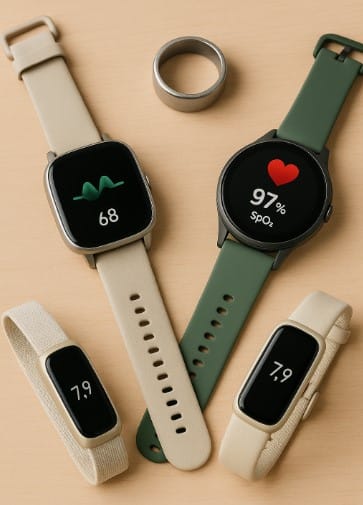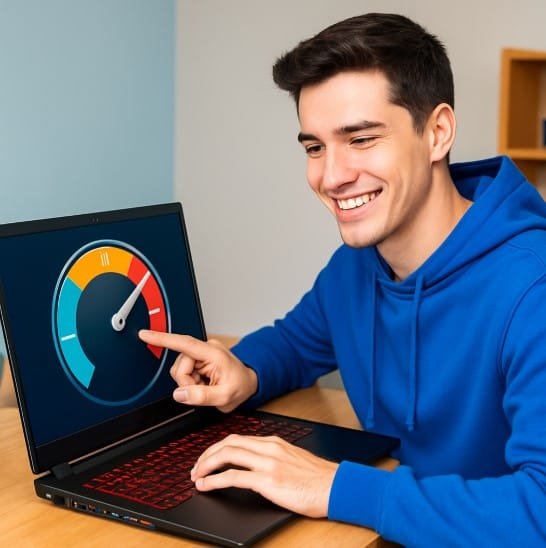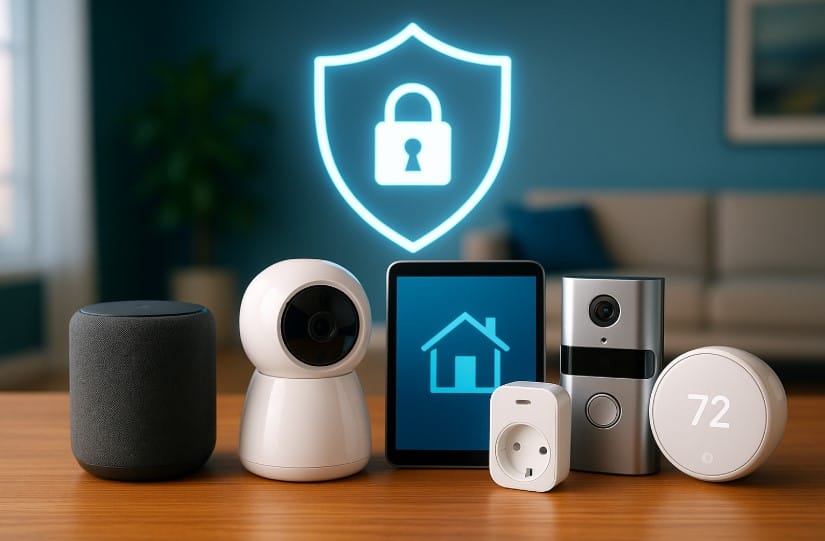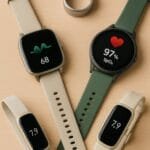Now Reading: Best Wearable Tech Innovations to Improve Your Health
- 01
Best Wearable Tech Innovations to Improve Your Health

Best Wearable Tech Innovations to Improve Your Health
From fitness trackers to smartwatches and even medical-grade gadgets, Wearable tech innovations are playing very important roles in the way we take care of our health. These tiny tools are becoming everyday companions for millions of people. But with so many options out there, how do you know which ones truly make a difference?
In this guide, we’ll explore the best wearable smart devices and how they’re helping real people live healthier, more connected lives.
What Makes Wearable Tech Innovations So Useful
Most of us want to be healthier, but keeping track of everything can feel overwhelming. That’s where wearable tech innovations step in and make life a whole lot easier. These smart gadgets aren’t just for tech lovers or fitness fanatics anymore. They’ve become everyday tools that help people of all ages take better care of their bodies and minds.
So, what makes these wearable tech innovations so useful? It’s all about convenience and real-time information. Imagine having a health assistant strapped to your wrist. You can check your heart rate, track your sleep, count your steps, monitor your stress levels, and even get reminders to move, all without doing anything more than glancing at your watch or band. It’s like having a mini health coach that’s always on and always with you.
Take Maya, a busy working mom of two. She recently started using one of the newer wearable health devices because she noticed she was always tired but never knew why. Turns out, she was barely getting any deep sleep. Her smart wearable tracked her sleep patterns and gently coached her to build better bedtime habits. After just a couple of weeks, Maya felt more energized and focused. She didn’t need a doctor visit to realize what was going wrong—just a little help from her wrist.
That’s the power of wearable smart devices. They put useful insights in your hands (literally) and help you make changes before small issues turn into big problems. Many of these devices are even linked to mobile apps that give you charts, tips, and gentle nudges to keep improving. It’s not about being perfect but about making progress, one day at a time.
What’s also exciting is how these tools are getting smarter and more personalized. New wearable health devices can now detect irregular heartbeats, track oxygen levels, and even help manage chronic conditions like diabetes or high blood pressure. This is happening right now, and it’s helping people stay informed and empowered.
Whether you’re trying to get fit, sleep better, or just take more control of your health, wearable tech innovations are making it easier than ever to do that without needing any medical or complicated routines.
Top Fitness Trackers That Keep You Moving
We all know that getting motivated to move more isn’t always easy. Between long workdays, family responsibilities, and the lure of the couch, it’s no wonder many of us struggle to stay active. That’s where wearable tech innovations like fitness trackers come in. These small but powerful devices help you stay on track and keep moving.
Think of a fitness tracker as your personal cheerleader. It wraps around your wrist and quietly logs your steps, heart rate, calories burned, and even how long you’ve been sitting. Every little bit of movement adds up and your tracker makes sure you see that. It’s a gentle nudge that says, “Hey, you’re doing great, but let’s aim for 500 more steps!”
One of the most popular wearable health devices today is the Fitbit Charge series. It’s sleek, lightweight, and super user-friendly. It counts steps, tracks sleep, monitors heart rate, and even shows you your workout intensity. Then there’s the Garmin Vivosmart, which is perfect for people who like to run, bike, or hit the gym. It’s waterproof, durable, and offers built-in GPS, so you can leave your phone behind on your morning jog.
And don’t overlook the Amazfit and WHOOP bands, these are two lesser-known but powerful options. WHOOP, in particular, has become a favorite among athletes and fitness enthusiasts because of how deeply it analyzes recovery and strain. It shows you not just what you did, but how it affected your body.
These wearable smart devices often sync with mobile apps that break your progress down in easy-to-understand visuals. You don’t need to be a fitness expert to see how your daily choices affect your goals. Whether you’re walking your dog, dancing in your living room, or climbing stairs instead of using the elevator, fitness trackers celebrate your big and small wins.
For those just starting their wellness journey, wearable tech innovations offer something powerful: accountability without judgment. No personal trainer watching. No competition. Just you and your progress.
So, if you’ve ever thought, “I should really move more,” a fitness tracker might be the boost you need. These wearable health devices turn your everyday actions into valuable health data and that’s something worth moving for.
Smartwatches That Go Beyond Just Telling Time
Before now, watches just told the time. Today, they can tell you about your heart, your stress levels, your calendar, and even how well you slept last night. Thanks to wearable tech innovations, smartwatches have become more like mini wellness centers on your wrist than simple timepieces.
Think about it, you’re in a meeting or running errands and your smartwatch gently buzzes. But it’s not a text but a reminder to stand up and stretch. Or maybe it’s alerting you that your heart rate suddenly spiked, even though you’re sitting still. These subtle but important nudges are why wearable smart devices like smartwatches are more than just stylish jewelry or accessories.
The Apple Watch Series 9 is a prime example of how far wearable tech innovations have come. It tracks everything from daily movement and exercise to sleep quality and blood oxygen levels. If your heart rhythm seems off, it can even notify you and suggest seeing a doctor. That’s a serious health tool hiding in a sleek, customizable design.
For Android users, the Samsung Galaxy Watch series offers similar features, including stress tracking, meditation guides, and built-in workouts. And if you prefer a longer battery life, the Garmin and TicWatch lines give you a week or more of power. This is perfect if you’re always on the go.
But what makes these wearable health devices so useful isn’t just the data alone, they actually help you act on it. Many smartwatches now include guided breathing exercises, hydration reminders, and even mindful moment alerts. Instead of just showing you numbers, they give you tools to improve your physical and mental well-being throughout the day.
Take James, for instance. He used to forget to take breaks while working from home. After getting a smartwatch, he started receiving hourly reminders to get up and move. It seemed small at first, but over time, those short walks helped lower his stress and boost his focus.
Wearable smart devices like these smartwatches are changing the way we think about our health; making it more personal, more proactive, and easier to manage. And honestly, having a stylish gadget that keeps you healthy at the same time is a win-win.
Sleep and Stress: Gadgets That Help You Recharge
Let’s talk about two things most of us never seem to get enough of—sleep and peace of mind. In today’s fast-paced world, stress piles up and rest gets pushed aside. But the good news is that wearable tech innovations are now helping people get better sleep and manage stress more effectively than ever before.
You may not think much about what happens while you sleep, but your body and brain are hard at work repairing, restoring, and getting you ready for the next day. That’s why so many wearable smart devices now include advanced sleep tracking. They don’t just record when you go to bed, they look at how long you spend in each sleep stage, how often you wake up, and how restful your night truly was.
One standout in this area is the Oura Ring. Unlike traditional watches or bands, this small, stylish ring packs in powerful sensors to track deep sleep, REM sleep, body temperature, and heart rate variability. It’s one of the most compact wearable health devices out there, and it’s a favorite among people who want detailed sleep data without bulky gear.
Then there’s stress, which is something we all feel but don’t always recognize until it’s taken a toll. Many wearable smart devices now monitor signs of stress through heart rate changes, skin temperature, and even breathing patterns. Devices like the Fitbit Sense or Apple Watch can detect when your body is under pressure and gently guide you through breathing exercises to help you calm down.
Think about Alex, a college student juggling school, work, and social life. His smartwatch began alerting him to rising stress levels before he even noticed them himself. He started using the guided breathing tool each day and found he was sleeping better, feeling calmer, and even performing better in class.
These kinds of wearable tech innovations aren’t magic. They’re smart tools that help you tune in to what your body’s already telling you. By tracking patterns and offering small, helpful tips, they make it easier to recharge both physically and mentally.
So, if your goal is to rest better and stress less, these wearable health devices could be the bedtime buddy and calming coach you didn’t know you needed.
Medical-Grade Devices You Can Actually Wear
Not long ago, keeping track of your health meant scheduling regular doctor visits, sitting through tests, and waiting for results. But now, wearable tech innovations are putting medical-grade monitoring tools right on your wrist or even your finger. These aren’t just fitness gadgets anymore. They’re trusted by doctors, recommended by health professionals, and most importantly, they’re helping everyday people take control of serious health conditions in real-time.
One standout in this space is the Apple Watch. Yes, it tells time and counts steps but it also features an FDA-approved ECG (electrocardiogram) function. That means it can check your heart rhythm and detect signs of atrial fibrillation, a serious condition that could lead to stroke if left untreated. For many users, this wearable smart device has offered early warnings that led them to seek medical care just in time before any emergency.
Then there’s the Dexcom G7, a continuous glucose monitor (CGM) worn on the arm or belly. It tracks blood sugar levels every few minutes and sends alerts directly to your phone or smartwatch. For people managing diabetes, it’s a lifesaver. No more finger pricks throughout the day but just constant, real-time data that helps them make smarter decisions about food, exercise, and insulin.
Other wearable health devices, like the Withings ScanWatch, combine sleek design with powerful health tools. It tracks blood oxygen levels, monitors for sleep apnea, and includes a medical-grade ECG. It doesn’t look like a typical medical device—it looks like a regular, stylish watch. And that’s part of the magic of today’s wearable tech innovations: they blend into your life while quietly supporting your health behind the scenes.
Also consider Ravi, a retired engineer who didn’t even realize his heart was skipping beats until his smartwatch alerted him during a quiet evening at home. That small buzz on his wrist led to a quick checkup, which revealed a heart condition he didn’t know he had. Thanks to that wearable smart device, Ravi was able to start treatment early.
These devices aren’t here to replace your doctor, but they do help bridge the gap between checkups. They keep you informed, alert you to changes, and empower you to act quickly if something’s off. And with wearable health devices becoming more advanced and accessible, taking charge of your well-being has never been easier.
How to Choose the Right Wearable for Your Life
With so many wearable tech innovations on the market, picking the right one can feel a bit like walking into a candy store. It’s exciting, but also a little overwhelming. Do you need something to track your steps? Monitor your heart? Help you sleep better? The good news is, there’s a perfect match out there for just about everyone. You just need to know what to look for.
Start by asking yourself what matters most to you. Are you trying to get more active? A basic fitness tracker might be enough. Are you managing a health condition or want deeper health insights? Then you’ll want to explore more advanced wearable health devices with features like ECG monitoring, oxygen tracking, or sleep analysis.
If you’re someone who likes to stay connected, a wearable smart device like a smartwatch could be your best bet. These do more than just track health, they sync with your phone to display texts, calls, and app notifications, all while helping you stay on top of your wellness goals.
Battery life is another big thing to think about. Some wearable tech innovations need to be charged every night, while others can last a week or more. If you’re always on the go or just don’t want one more thing to remember, look for options known for longer battery life like certain Garmin or Amazfit models.
Comfort also matters. You’ll be wearing this device all day (and maybe all night), so make sure it feels good on your wrist or finger. Some wearable smart devices are super slim and lightweight, while others have bigger screens and more features. Try a few on in-store if you can, or read reviews to see what others are saying about the fit and feel.
And don’t forget about the app that comes with it. The best wearable health devices pair with user-friendly apps that show your data in simple charts and offer helpful tips. Look for one that makes it easy to understand what your numbers mean because the goal isn’t just collecting data, it’s using it to feel better every day.
In the end, the best wearable tech innovations are the ones that fit your lifestyle, support your goals, and make taking care of yourself feel just a little bit easier.
Your Questions Answered
Q1: Are wearable health devices accurate?
Most modern wearable health devices are very accurate for everyday use. While they may not replace clinical tests, they offer reliable, real-time insights that help track trends and spot changes early.
Q2: Can wearable smart devices really help with stress and sleep?
Yes! Many wearable smart devices track heart rate and breathing patterns to detect stress. They also monitor sleep quality and offer tips or guided tools (like breathing exercises) to help you relax and sleep better.
Q3: Do I need a smartphone to use wearable tech innovations?
In most cases, yes. Wearable tech innovations often sync with mobile apps to show your health data in full detail. But once set up, many devices work independently during the day and update the app when reconnected.
Q4: Which wearable is best for beginners?
If you’re just starting out, consider a basic Fitbit or Xiaomi fitness tracker. These wearable smart devices are affordable, user-friendly, and still packed with useful features like step counting, heart rate tracking, and sleep monitoring.
Q5: Are there wearables for seniors or people with health conditions?
Absolutely. Devices like the Apple Watch or medical-grade ECG monitors are great for seniors or those managing chronic conditions. These wearable health devices can even alert family members or caregivers in emergencies.
Let’s Keep the Conversation Going!
Thanks for exploring the world of wearable tech innovations with us. Whether you’re looking to move more, sleep better, or simply stay on top of your health, there’s a wearable smart device out there ready to help you.
Do you have questions or your own experience with wearable health devices to share? Drop a comment below, we’d love to hear from you! And don’t forget to check out our other articles for more tips on getting the most from your tech.















